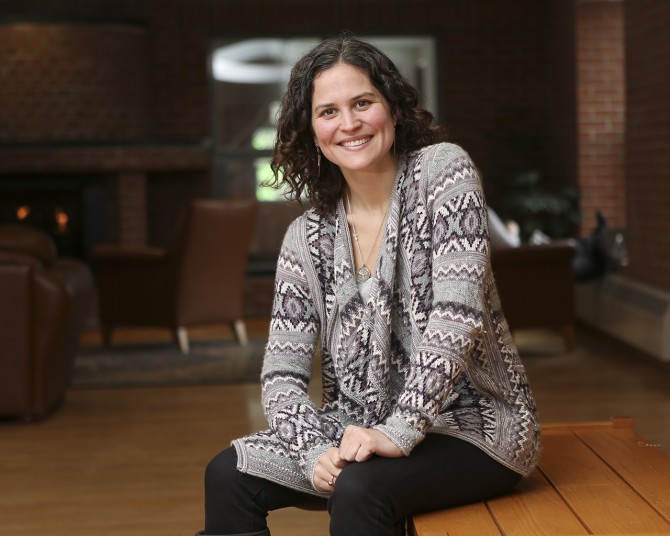Being smart about the smart grid
By Paul Russell
A smart grid – a network using two-way digital communications to monitor and react to energy-usage changes – generates a vast amount of data.
Now, utilities are exploring ways to use this data to drive the energy industry forward, according to Drury Mackenzie, smart grid and innovation lead for Avangrid, the parent company of NYSEG and other utilities.
On Oct. 15, as part of the Center for Sustainable Global Enterprise’s weekly speaker series, Mackenzie discussed her work with smart grid technologies in New York state.
First implemented at the start of the decade, smart meters in homes and businesses relay information to help suppliers better understand fluctuations in energy needs to send the right amount of energy to the right places at the right time. About 50 percent of Americans have smart meters, Mackenzie said.
Mackenzie said the industry is attempting to make the most of the data generated by smart grids by creating data-driven initiatives (usually in the form of rate incentives) that encourage new energy habits.
For example, some utilities are implementing time-of-use rates, in which data about peak energy usage times are analyzed so utilities can charge different prices for energy depending on the time of day. This encourages customers to stagger their energy use so utilities don’t have to engage as many power plants at peak times, shrinking their carbon footprint.
Time-of-use rates will soon be the default pricing system for energy in California. “New York is definitely not there yet,” Mackenzie said. For the average user, a time-of-use rate system potentially means higher prices, and such systems are difficult for a utility or a regulator to implement because “no one wants to be the bad guy,” Mackenzie said.
Another option for using smart meter data for positive change is analyzing it internally to help the company offer personalized energy solutions (for example, Avangrid has “created profile clusters to show which customers need energy efficiency”), to sell it to third parties or to give it directly to customers.
Decisions made about the use of this new data will have long-lasting effects on utilities such as Avangrid, Mackenzie said: “There’s just been so much transformation, even in the past two years, of the data utilities have, how it can be shared, and how it can be used effectively.”
The Center for Sustainable Global Enterprise’s weekly speaker series is held Mondays at 6p.m.in Sage Hall, Room B08.
Paul Russell '19 is a writer for the Center for Sustainable Global Enterprise.
Media Contact
Get Cornell news delivered right to your inbox.
Subscribe


